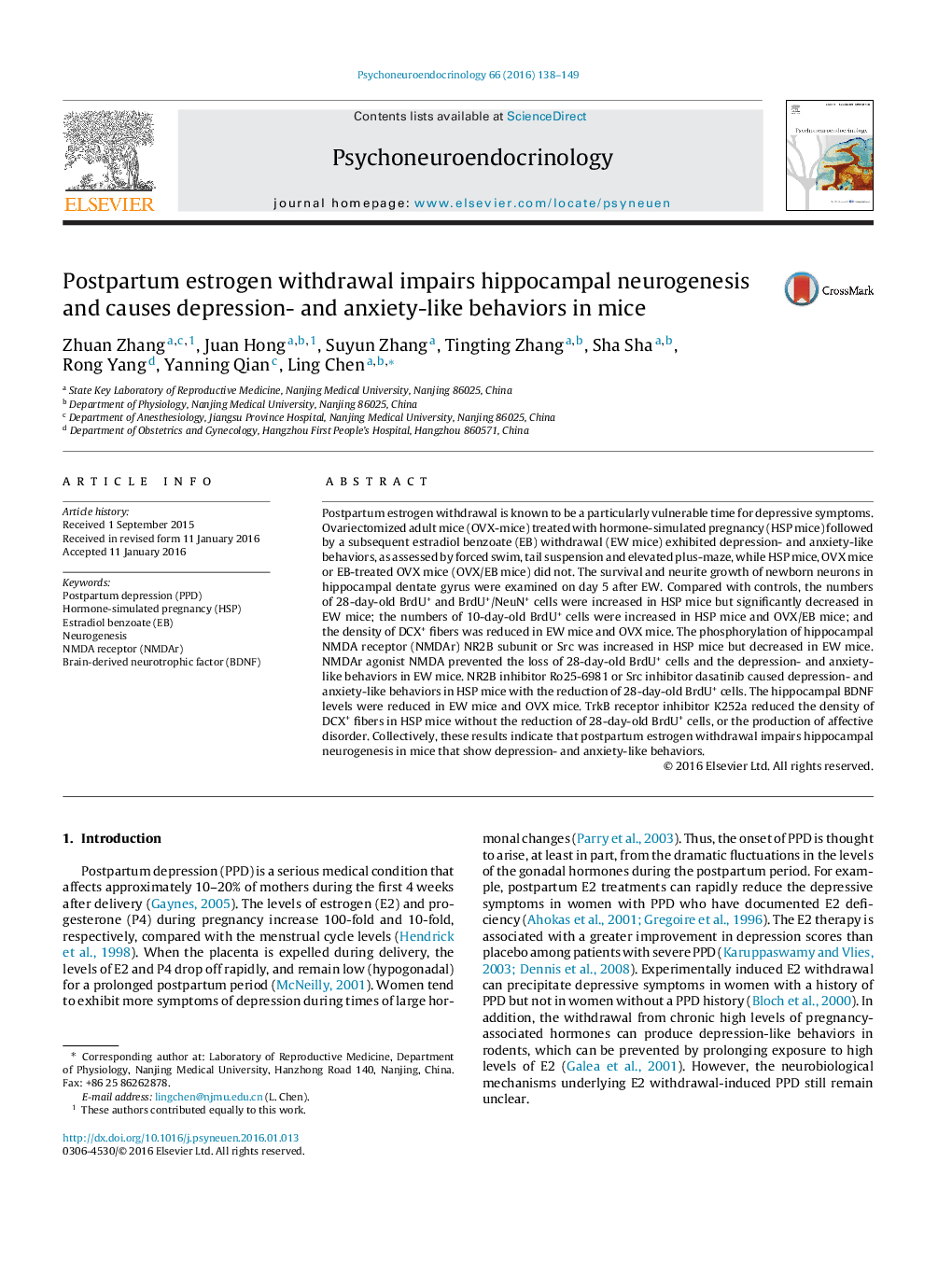| کد مقاله | کد نشریه | سال انتشار | مقاله انگلیسی | نسخه تمام متن |
|---|---|---|---|---|
| 336330 | 547112 | 2016 | 12 صفحه PDF | دانلود رایگان |
• Estrogen withdrawal (EW) after HSP induced depression and anxiety behaviors in mice.
• Survival of mature newborn neurons in hippocampal DG was impaired by EW after HSP.
• EW after HSP reduces hippocampal Src activity to suppress NR2B phosphorylation.
• NMDAr agonist could reduce the loss of newborn neurons after EW of HSP.
• NMDAr agonist improved depression- and anxiety-like behaviors after EW of HSP.
Postpartum estrogen withdrawal is known to be a particularly vulnerable time for depressive symptoms. Ovariectomized adult mice (OVX-mice) treated with hormone-simulated pregnancy (HSP mice) followed by a subsequent estradiol benzoate (EB) withdrawal (EW mice) exhibited depression- and anxiety-like behaviors, as assessed by forced swim, tail suspension and elevated plus-maze, while HSP mice, OVX mice or EB-treated OVX mice (OVX/EB mice) did not. The survival and neurite growth of newborn neurons in hippocampal dentate gyrus were examined on day 5 after EW. Compared with controls, the numbers of 28-day-old BrdU+ and BrdU+/NeuN+ cells were increased in HSP mice but significantly decreased in EW mice; the numbers of 10-day-old BrdU+ cells were increased in HSP mice and OVX/EB mice; and the density of DCX+ fibers was reduced in EW mice and OVX mice. The phosphorylation of hippocampal NMDA receptor (NMDAr) NR2B subunit or Src was increased in HSP mice but decreased in EW mice. NMDAr agonist NMDA prevented the loss of 28-day-old BrdU+ cells and the depression- and anxiety-like behaviors in EW mice. NR2B inhibitor Ro25-6981 or Src inhibitor dasatinib caused depression- and anxiety-like behaviors in HSP mice with the reduction of 28-day-old BrdU+ cells. The hippocampal BDNF levels were reduced in EW mice and OVX mice. TrkB receptor inhibitor K252a reduced the density of DCX+ fibers in HSP mice without the reduction of 28-day-old BrdU+ cells, or the production of affective disorder. Collectively, these results indicate that postpartum estrogen withdrawal impairs hippocampal neurogenesis in mice that show depression- and anxiety-like behaviors.
Journal: Psychoneuroendocrinology - Volume 66, April 2016, Pages 138–149
